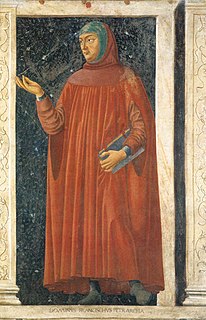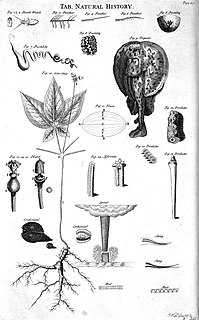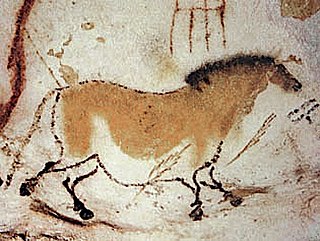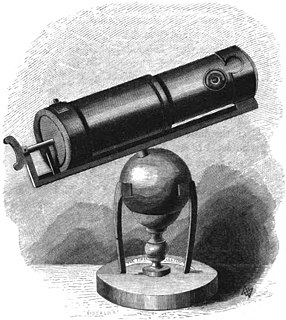
Early music generally comprises Medieval music (500–1400) and Renaissance music (1400–1600), but can also include Baroque music (1600–1750). Early music is a broad musical era in the history of Western art music.

The Renaissance is a period in European history, covering the span between the 14th and 17th centuries and marking the transition from the Middle Ages to modernity. The traditional view focuses more on the early modern aspects of the Renaissance and argues that it was a break from the past, but many historians today focus more on its medieval aspects and argue that it was an extension of the Middle Ages.
Greek literature dates back from the ancient Greek literature, beginning in 800 BC, to the modern Greek literature of today.

A medieval university is a corporation organized during the Middle Ages for the purposes of higher education. The first Western European institutions generally considered universities were established in the Kingdom of Italy, the Kingdom of England, the Kingdom of France, the Kingdom of Spain, and the Kingdom of Portugal between the 11th and 15th centuries for the study of the Arts and the higher disciplines of Theology, Law, and Medicine. During the 14th century there was an increase in growth of universities and colleges around Europe. These universities evolved from much older Christian cathedral schools and monastic schools, and it is difficult to define the exact date when they became true universities, though the lists of studia generalia for higher education in Europe held by the Vatican are a useful guide.

The "Dark Ages" is a historical periodization traditionally referring to the Middle Ages, that asserts that a demographic, cultural, and economic deterioration occurred in Western Europe following the decline of the Roman Empire.

Natural history is a domain of inquiry involving organisms including animals, fungi and plants in their environment; leaning more towards observational than experimental methods of study. A person who studies natural history is called a naturalist or natural historian.
Islamic studies refers to the study of Islam. Islamic studies can be seen under at least two perspectives:

The Latin school was the grammar school of 14th- to 19th-century Europe, though the latter term was much more common in England. Emphasis was placed, as the name indicates, on learning to use Latin. The education given at Latin schools gave great emphasis to the complicated grammar of the Latin language, initially in its Medieval Latin form. Grammar was the most basic part of the trivium and the Liberal arts — in artistic personifications Grammar's attribute was the birch rod. Latin school prepared students for university, as well as enabling those of middle class status to rise above their station. It was therefore not unusual for children of commoners to attend Latin schools, especially if they were expected to pursue a career within the church. Although Latin schools existed in many parts of Europe in the 14th century and were more open to the laity, prior to that the Church allowed for Latin schools for the sole purpose of training those who would one day become clergymen. Latin schools began to develop to reflect Renaissance humanism around the 1450s. In some countries, but not England, they later lost their popularity as universities and some Catholic orders began to prefer the vernacular.
Rosamond Deborah McKitterick, is a British medieval historian. She is an expert on the Frankish kingdoms in the eighth and ninth centuries AD, using palaeographical and manuscript studies to illuminate aspects of the political, cultural, intellectual, religious and social history of the early Middle Ages. From 1999 until 2016 she was Professor of Medieval History and Director of Research at the University of Cambridge. She is a Fellow of Sidney Sussex College and Professor Emerita of Medieval History in the University of Cambridge.

Charles Homer Haskins was a history professor at Harvard University. He was an American historian of the Middle Ages, and advisor to U.S. President Woodrow Wilson. He is widely recognized as the first academic medieval historian in the United States.

Lynn Thorndike was an American historian of medieval science and alchemy. He was the son of a clergyman, Edward R. Thorndike, and the younger brother of Ashley Horace Thorndike, an American educator and expert on William Shakespeare, and Edward Lee Thorndike, known for being the father of modern educational psychology.
Richard Trexler was a professor of History at Binghamton University, State University of New York. A specialist of the Renaissance, Reformation of Italy, and Behaviorist History, Trexler had over fifty published works. He was best known for revolutionizing the field of public life as historically significant. To celebrate his career and retirement, Binghamton University on April 14, 2004, had a symposium in his honor where renowned scholars in Early Modern Europe spoke on his behalf.

Thomas F. Madden is an American historian, a former Chair of the History Department at Saint Louis University in St. Louis, Missouri, and Director of Saint Louis University's Center for Medieval and Renaissance Studies. A specialist on the Crusades, he has often commented in the popular media after the events of September 11, to discuss topics such as how Muslims have viewed the medieval Crusades and their parallels to today's interventions in the Middle East. He has frequently appeared in the media, as a consultant for various programs on the History Channel and National Public Radio. In 2007, he was awarded the Haskins Medal from the Medieval Academy of America, for his book Enrico Dandolo and the Rise of Venice, also a "Book of the Month" selection by the BBC History magazine. In 2012, he was named a Fellow of the John Simon Guggenheim Memorial Foundation.
Latinisationof names, also known as onomastic Latinisation, is the practice of rendering a non-Latin name in a Latin style. It is commonly found with historical proper names, including personal names and toponyms, and in the standard binomial nomenclature of the life sciences. It goes further than romanisation, which is the transliteration of a word to the Latin alphabet from another script.
Robert Sabatino Lopez, also known as Robert S. Lopez, was a Jewish-Italian-American historian of medieval European economic history. He taught for many years at Yale University as a Sterling Professor of History.

Medieval philosophy is the philosophy that existed through the Middle Ages, the period roughly extending from the fall of the Western Roman Empire in the 5th century to the Renaissance in the 15th century. Medieval philosophy, understood as a project of independent philosophical inquiry, began in Baghdad, in the middle of the 8th century, and in France, in the itinerant court of Charlemagne, in the last quarter of the 8th century. It is defined partly by the process of rediscovering the ancient culture developed in Greece and Rome during the Classical period, and partly by the need to address theological problems and to integrate sacred doctrine with secular learning.
Margaret Mary McGowan CBE is a noted dance historian and historian of early modern France. Her work is mainly focused on the late Renaissance and the fin-de-siècle period at the end of the nineteenth century. She did her dissertation at the Warburg Institute of the University of London under the supervision of Frances Yates, published subsequently as L'art du Ballet de Cour en France, 1581–1643. In addition to nearly a dozen books she has published over eighty articles and book chapters.

The Arizona Center for Medieval and Renaissance Studies (ACMRS) is a statewide research unit in Arizona charged with coordinating and stimulating the interdisciplinary exploration of medieval and Renaissance culture. Its activities cover a period roughly from 400 C.E., the fall of the Roman Empire, to 1700 C.E. ACMRS organizes programs at Northern Arizona University in Flagstaff, Arizona State University in Tempe, and the University of Arizona in Tucson.

The Renaissance in Scotland was a cultural, intellectual and artistic movement in Scotland, from the late fifteenth century to the beginning of the seventeenth century. It is associated with the pan-European Renaissance that is usually regarded as beginning in Italy in the late fourteenth century and reaching northern Europe as a Northern Renaissance in the fifteenth century. It involved an attempt to revive the principles of the classical era, including humanism, a spirit of scholarly enquiry, scepticism, and concepts of balance and proportion. Since the twentieth century the uniqueness and unity of the Renaissance has been challenged by historians, but significant changes in Scotland can be seen to have taken place in education, intellectual life, literature, art, architecture, music,science and politics.














